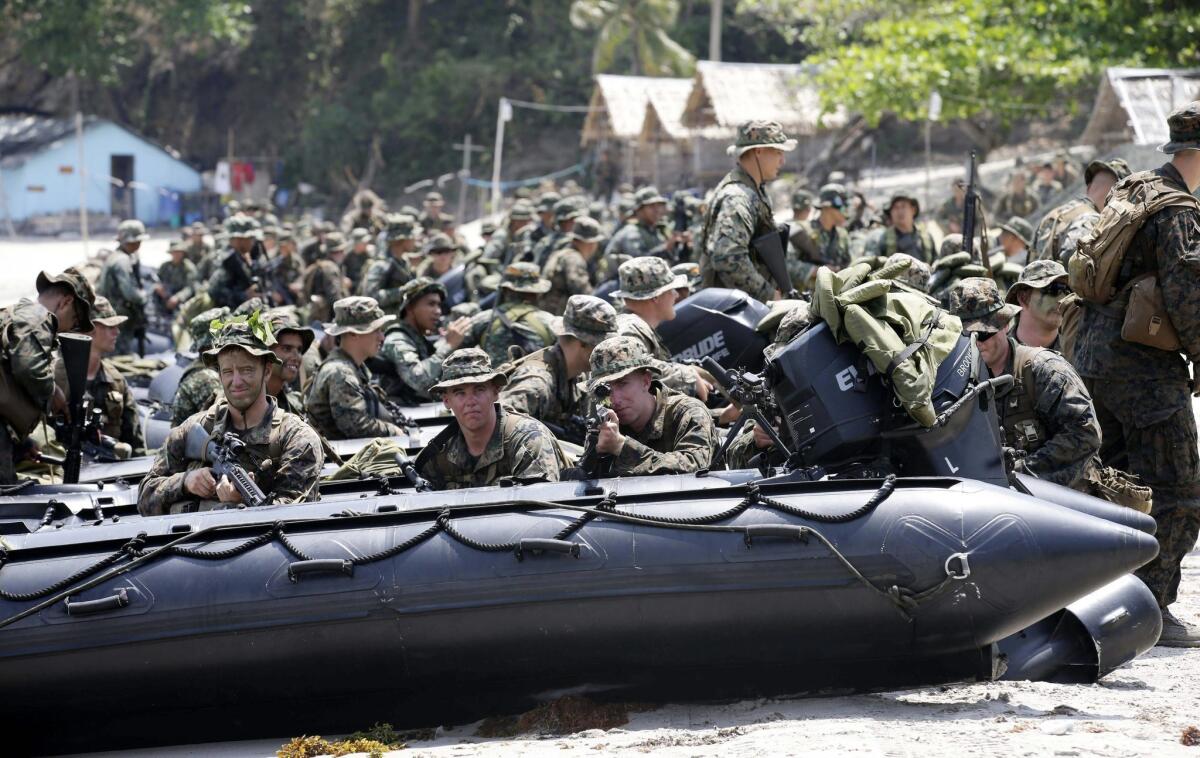The Week Ahead: Baiting Iran, briefing Brussels, a call to Brunei

Azerbaijan taunting Iran with Azerbaijani confab, Israel visit
Through Tuesday, April 23 — Azerbaijan has sent its foreign minister to Israel this week for the first time since the former Soviet republic re-embraced its Islamic heritage 22 years ago after independence from the communist ideology and atheism long imposed by Moscow.
The overture could further upset Iran, which last month protested a conference of Azeris in the capital, Baku, that included an Iranian delegation of the ethnic group that seeks autonomy from Tehran.
Foreign Minister Elmar Mammadyarov meets with top Israeli and Palestinian officials Monday and Tuesday to discuss regional tensions and the potential for economic collaboration, the Baku government said in announcing the visit.
Israel opened a diplomatic mission in the Azerbaijani capital 20 years ago and is a key supplier of weapons to the Caucasus state. Azerbaijan also hosts a wide array of Western oil interests in the Northern Caspian Sea, where it shares coastline with Iran. The presence of companies from Britain and the U.S., among others, has been an irritant for Tehran, whose relations with Western countries have been strained since the 1979 Islamic revolution.
One in six of Iran’s 80 million people are ethnic Azeris, according to the CIA World Factbook. Both Iran and Azerbaijan are predominantly Shiite Muslim, but the religion is less fervently practiced in the former Soviet republic.
Kerry caucusing with European allies on global hot spots
Monday-Wednesday, April 22-24 –- After a stop in Istanbul to meet with Syrian Opposition Coalition members, U.S. Secretary of State John F. Kerry will travel to Brussels to consult with fellow NATO foreign ministers on the world’s security worries.
Kerry and his colleagues from Europe and Canada will discuss the seemingly intractable civil war in Syria and its spillover risks elsewhere in the roiling Middle East. The Western diplomats will also host a session of the NATO-Russian Council to confer with their Russian military counterparts and meet with non-NATO states that send troops to the International Security Assistance Force in Afghanistan that is winding down its mission there next year.
While in Brussels, Kerry will also sit down for talks with European Union officials and hold other bilateral meetings, the State Department said without providing details.
In addition to the security issues to be discussed, the Eurozone’s protracted currency crisis is likely to be on the agenda. Mounting debts and borrowing costs for the 17 countries that use the euro have mired the continent in recession and been blamed for the slow recovery in the United States.
Choppy waters ahead for Brunei gathering of ASEAN
Wednesday-Thursday, April 24-25 -- Intensifying battles over the South China Sea are expected to make rough sailing for the 10 members of the Assn. of Southeast Asian Nations when they meet in the Sultanate of Brunei on Wednesday.
The 22nd summit of the loose alliance comes at a time of sharpening rhetoric and maritime challenges in the region. The gathering will include participation by nonmember China, which has conducted heavy-handed shows of force in claiming control of uninhabitable shoals and islands surrounded by resource-rich waters and seabed.
China’s claims of sovereignty over the South China Sea are challenged by other littoral states — Philippines, Vietnam, Malaysia, Brunei and Indonesia. Beijing is also engaged in emotion-driven clashes with Japan, South Korea and Taiwan over other veritable rock piles in the East China Sea.
Philippines President Benigno Aquino III plans to push the alliance to agree on a code of conduct for all navigating the disputed waters — a project that has been proposed at previous ASEAN gatherings only to founder amid the discord.
Asia-watchers will have their eye out for any signals from the delegation sent by the new Chinese leadership under President Xi Jinping. Beijing’s once-a-decade shakeup of the power structure over the last year was thought to be the impetus for much of its saber-rattling over the islands.
If the ASEAN members manage to agree on common rules for use of the waters, “the ball will be in China’s court,” noted Philippines Department of Foreign Affairs spokesman Raul Hernandez.
Friday, April 26 -- King Abdullah II of Jordan pays a visit to President Obama at the White House on Friday as the Pentagon gears up to deploy 200 U.S. troops to the kingdom to be poised for any serious escalation of the civil war in neighboring Syria.
Jordan has given refuge to about 500,000 Syrians who have fled the 2-year-old conflict. The provisional U.S. military force is expected to train and prepare other forces in the region to intervene should Syrian President Bashar Assad use his arsenal of nerve gases and other chemical weapons on insurgents.
The flow of Syrians into Jordan has further unsettled the kingdom of 6 million — half of them Palestinians — where ethnic and tribal frictions have been heating up in recent years and demands for reform are growing louder.
An enhanced U.S. military presence is expected to signal U.S. support for the Jordanian monarch as he navigates the volatile social and political issues gripping his country.
More to Read
Sign up for Essential California
The most important California stories and recommendations in your inbox every morning.
You may occasionally receive promotional content from the Los Angeles Times.











